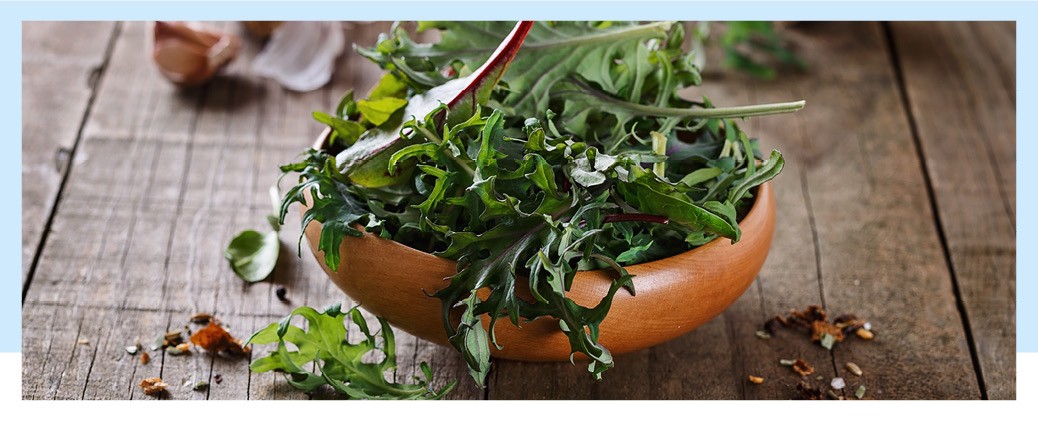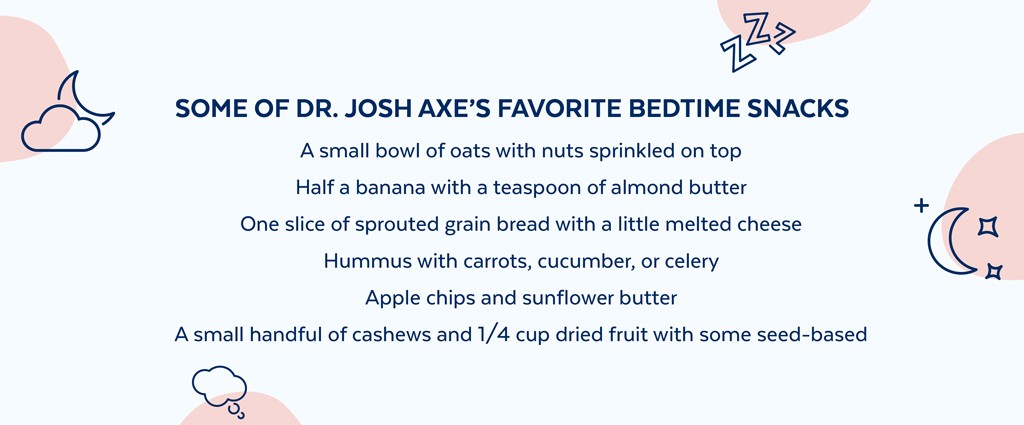Getting a good night’s sleep is important for so many aspects of your health, and, luckily, there are foods that can help you sleep better.
Research shows sleep can help regulate your immune system, improve your memory and make your heart healthier. Logging plenty of shut-eye can also control your appetite and put you in a better mood. However, snoozing for seven to eight hours each night isn’t always as easy as it sounds. In fact, according to the Centers for Disease Control and Prevention, a third of adults in the U.S. report that they usually get less than the recommended amount of sleep.
.
“A balanced diet can go a long way toward helping to promote good sleep patterns…”
– Dr. Josh Axe
Whether you suffer from the occasional bout of insomnia or you struggle to get enough sleep on a regular basis, there’s good news: “A balanced diet can go a long way toward helping to promote good sleep patterns by reducing the risk for conditions that can lead to sleep disturbances and promoting a healthy circadian rhythm,” says Josh Axe, D.N.M., D.C., C.N.S., a doctor of natural medicine, chiropractor and clinical nutritionist. There are also a number of specific foods that support restful sleep.
“Just remember to add these foods to a healthy, anti-inflammatory diet that includes a variety of foods—including enough protein and complex carbohydrates,” says Axe. “You also want to be sure you’re practicing other healthy lifestyle habits, such as exercising, reducing screen time before bed, and avoiding eating too much sugar, processed foods, caffeine and alcohol.”
Here are Axe’s top picks for foods that can help you sleep better, starting tonight:
Bananas, kiwis, and tart cherries: When it comes to foods that help promote sleep, some fruits are better than others. Bananas, kiwis and especially tart cherries have high levels of melatonin, a molecule that’s critical in regulating the sleep-wake cycle in humans. “Many fruits also have a fair amount of healthy carbohydrates, and carbs are necessary for a good night’s sleep,” says Axe.
Rice, oats, and barley: These sprouted grains are loaded with magnesium, which plays a role in supporting deep, restorative sleep by maintaining healthy levels of GABA (a neurotransmitter that promotes sleep).
Turkey: That post-Thanksgiving meal drowsiness you feel isn’t just because you had a busy, fun holiday. In addition to protein, turkey is loaded with tryptophan, an amino acid that interacts with serotonin and melatonin—brain chemicals that help you fall asleep.
Nuts and seeds: Nuts are also good sources of tryptophan, which interacts with serotonin and melatonin in your brain to help your body stay on an optimal sleep-wake cycle. This will help you feel tired when it’s time to go to sleep each night and awake when your alarm goes off in the morning.
Fish: Wild-caught fatty fish such as tuna, salmon or trout are loaded with omega-3 fatty acids, which have been shown to support a good night’s sleep.
Kale, spinach, Swiss chard, and collard greens: Dark leafy greens like these are filled with calcium and magnesium, which help to support a good night’s sleep.
Chamomile tea: For years, chamomile tea has been used to treat anxiety and insomnia. “The nightly ritual of a steaming cup of tea has been shown to help people fall asleep,” says Axe. “Passionfruit and peppermint are also good choices. Just be sure whatever tea you choose is caffeine free.”
Axe recommends including one or more of these foods with dinner, or have a balanced snack with some protein and complex carbs about an hour before bed.
“It’s also a good idea to avoid eating sugary sweets, chocolate, simple carbs, juice or high-glycemic fruit just before bed, as it can spike blood sugar and make you feel more awake,” he says.
Learn how Kroger is helping people to live healthier lives at krogerhealth.com







